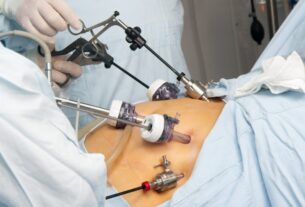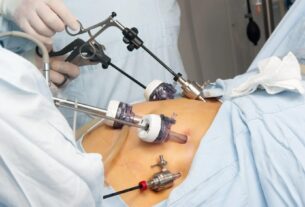Weight loss surgery can be a life-changing decision, offering individuals a new lease on life by addressing severe obesity and related health conditions. For those considering weight loss surgery in Baltimore, it is essential to understand that the surgery itself is just one step in a larger journey toward improved health and wellness. Follow-up care, immediately after surgery and over the long term, is crucial in ensuring successful outcomes and maintaining overall well-being.
The Role of Follow-Up Care
Post-surgery follow-up care is critical in monitoring the patient’s health, ensuring proper nutritional intake, and addressing any complications that may arise. Regular check-ups allow healthcare providers to track progress, make necessary adjustments in diet and exercise plans, and offer support through psychological counseling. This holistic approach helps maintain long-term weight loss and improves overall quality of life.
Nutritional Guidance and Support
After surgery, dietary guidelines and nutritional counseling become crucial. Patients must adapt to a new way of eating to ensure they receive adequate nutrients while adjusting to a smaller stomach capacity. Regular consultations with a dietitian can help in creating a balanced meal plan that promotes healing and maintains energy levels. Additionally, ongoing support can address any deficiencies or dietary concerns, ensuring patients stay on track with their weight loss goals.
Psychological and Emotional Support
The psychological impact of weight loss surgery can be profound. As patients undergo significant physical changes, they may experience emotional and mental health challenges. Follow-up care often includes access to support groups and mental health professionals who can provide coping strategies and emotional support. Engaging in these resources can significantly improve a patient’s ability to adjust to their new lifestyle and maintain a positive outlook.
Long-Term Success and Maintenance
Sustaining weight loss after surgery requires ongoing commitment and support. Regular follow-up appointments help reinforce healthy habits and make necessary adjustments. They also offer an opportunity to address any concerns and celebrate milestones in the weight loss journey. By keeping in touch with healthcare providers, patients are more likely to stay motivated and achieve lasting results.
Frequently Asked Questions
What should I expect during my follow-up appointments?
Follow-up appointments typically involve reviewing your overall health, nutritional status, and psychological well-being. Your healthcare provider will monitor your weight loss progress, discuss any challenges, and adjust your treatment plan as needed.
How often should I attend follow-up appointments?
The frequency of follow-up appointments can vary depending on individual needs and the type of surgery performed. Initially, these appointments may be more frequent, but they generally decrease over time.
What role does diet play in my recovery?
Diet is a critical aspect of recovery and long-term success after weight loss surgery. Adhering to the dietary guidelines provided by your healthcare team helps ensure you receive the necessary nutrients and maintain your weight loss.
How can I manage emotional changes after surgery?
Engaging with support groups and mental health professionals can significantly help in managing the emotional challenges that come with such a significant life change. Open communication with your healthcare team is also essential for receiving the support you need.
Conclusion
The journey following weight loss surgery requires a comprehensive follow-up care plan to achieve and maintain long-term success. Regular check-ups, nutritional guidance, psychological support, and addressing complications promptly all contribute to a healthier, more fulfilling life post-surgery.





